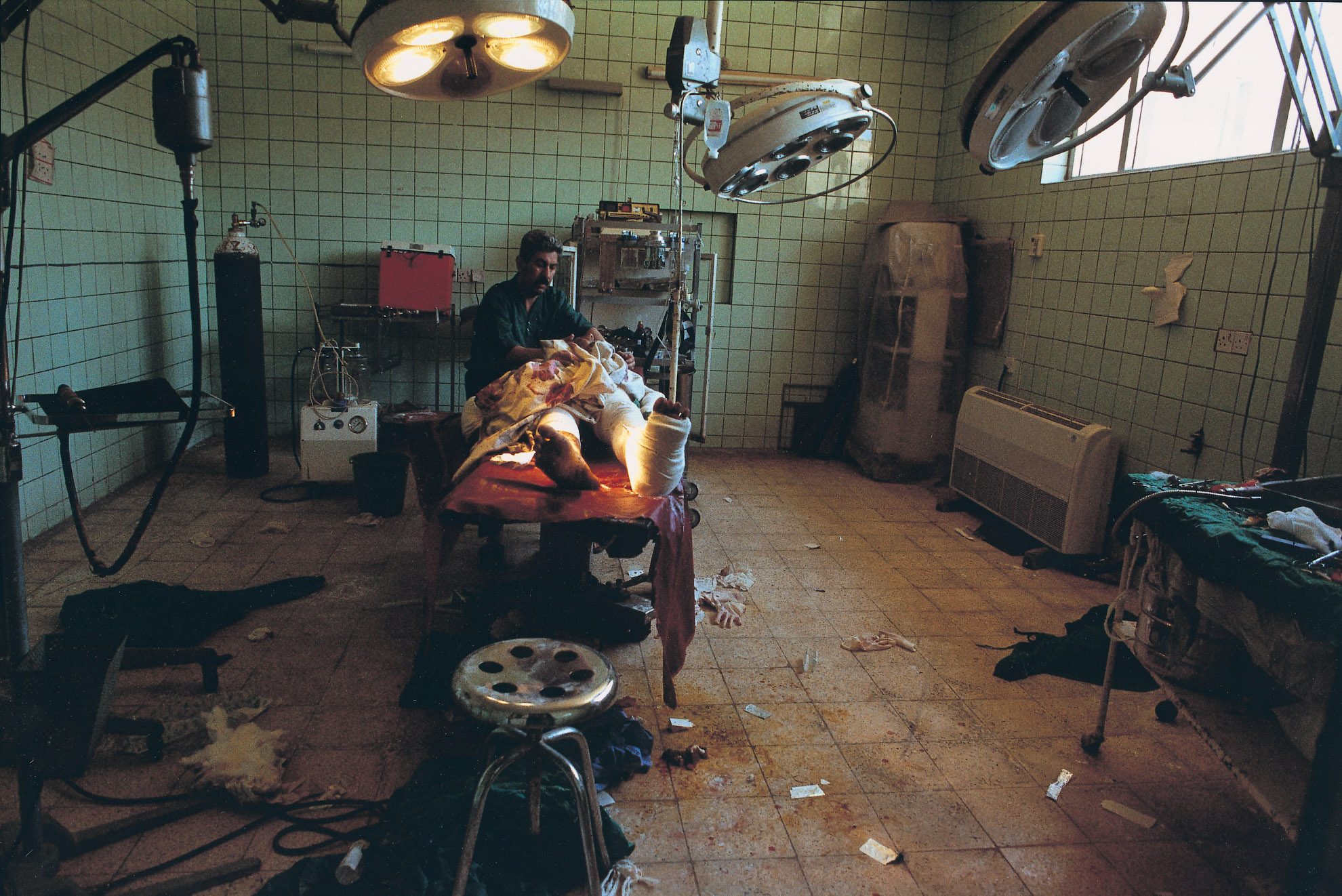Presentation
In May 2003, days after US President George W. Bush had declared an end to the war in Iraq, Baghdad was a dangerous and chaotic city, where the Ali Baba’s were still doing their business and any kind of government was non-existent. The Al Karj hospital was receiving every day wounded by explosions, shot and burned…. Curiously, most of the patients were children or very young people, wounded from handling the remains of the weaponry abandoned by Iraqi soldiers after they disbanded when American troops entered the capital.
Every morning people were admitted with gunshot wounds resulting from the nightly shootings. The problem of lack of gasoline for vehicles, besides seeming incongruous in a country with one of the world’s largest oil reserves, led to serious explosions and fires at gas stations due to gasification and non-existent security conditions, resulting in many deaths and injuries with savage burns. Thus, for doctors and medical staff at Baghdad’s Al Karj hospital, the war was not yet over. A team of surgeons from the Spanish NGO, Médecins du Monde, worked hand in hand with Iraqi doctors performing several operations a day in the hospital’s dilapidated operating theatres.
Biography
Javier Teniente (Vigo, 1968) has covered conflicts caused by war, marginalization, and natural disasters in different parts of the world, including reports from Central America (Hurricane Mitch 1998), Kosovo (1999), Iraq (2003), Haiti (2004), and coverage of the Tsunami disaster in Banda Aceh, Indonesia (January 2005).
Over the years he has collaborated as a photographer with the United Nations, Doctors of the World, Doctors without Borders, Action against Hunger, and other international organizations.




